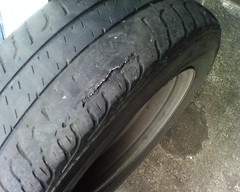So as I stir my morning oatmeal, the local hour of KQED’s Forum plays. It’s about the upcoming San Francisco International Poetry Festival. The host starts taking listener calls, asking that they share poets, especially little-known ones, whose work they love, or talk about poetry and its significance in general.
The second caller wants to know how to get his sonnets published.
For Muse’s sake here, people. I’m well aware of the Magic Cover Letter Effect—the irrational belief among unpublished writers that there is one thing they could do that would get them published, and the resulting tendency to ask embarrassing questions at panels and readings. However, for poetry it’s worse.
I’ve written some poetry in my day. And I never, ever try to get it published. Why? Some of it isn’t awful, but over the years, I haven’t been a consumer of poetry. Until I entered the MFA program, I had never bought a literary journal or a book of poetry that wasn’t an anthology for class. I reasoned that I had no right to ask anyone to publish my poetry if I wasn’t consuming other people’s.
And this is one of those times when I break my own rules and say, “My way is Right.” If you are a poet, if you feel in your heart that you’re a poet, that someday people will be reading your poems in journals and chapbooks—walk down to Powell’s, or your local independent bookstore, or, if all else fails, Borders (they have a decent number of litmags). Buy some poetry journals. Mark the poems in the journals you really love, and look up the authors. Buy a book of poetry. I love Jeannine Hall Gailey’s first book, Becoming the Villainess. You could also pick up Dorianne Laux’s Facts About the Moon, or Joe Millar’s latest, Fortune, or a book by someone I’ve never heard of, someone you’ll discover for yourself in the musty rows at Powell’s, someone whose poetry you will hide on the way to the register, unsure they’ll really let you buy this for only X dollars, feeling like a thief.
“Everyone’s a poet,” Jack Hirschman, San Francisco’s Poet Laureate said on Forum today. But it takes more than that, I think. In order to really be a poet, you have to realize you’re taking part in an ancient art that has fallen on hard times, that is sustained by love, and by the generosity of those who have little. Who is going to spend ten, fifteen, twenty dollars on a book of poems? On a thin book with much blank space, on a genre even public radio callers distance with a “I don’t read poetry, really, but…”? Who is going to do that? Maybe you. And maybe then you’ll see which markets your work would be good in, maybe you’ll see opportunities for your own work to improve, maybe you’ll find inspiration and strength. Maybe you will become a part of a community of writers. Maybe you’re a poet. Go and see.


